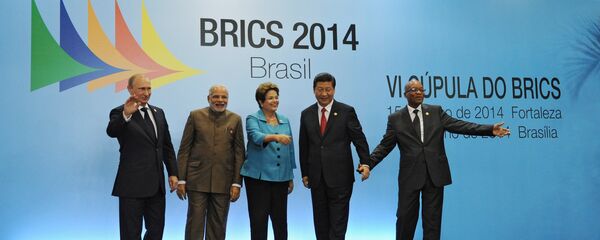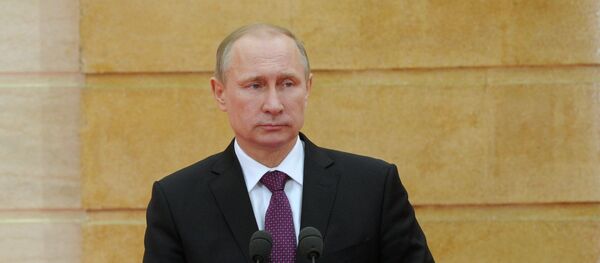Late last month, The Economist published an article on the propensity for Russia to carry itself with a sense of exceptionalism similar to the United States. "In both Washington and Moscow, those who hold or seek power like to speculate out loud on whether their country's very existence serves a higher, divine purpose." With the case for US claims to exceptionalism relatively self-evident, The Economist turned to Russia, arguing that "Mr. Putin has been ever-bolder in making assertions that Russia has a unique vocation to follow in the world, as the nucleus of a distinctive civilization (around which smaller nations can gather) and as a guardian of traditional mores in a decadent, gender-bending world."
While Eskin agrees that the United States sees itself as an exceptional power (noting that this idea is voiced with any hesitation or inhibitions even at the highest levels of power), he argues that Russia has been stripped of such grand illusions since the collapse of the Soviet Union. "The author of this article brings us some ideas of the Russian philosophers which emphasize a certain very special spirit of Russia, and he brings to mind Berdyaev, who combined traditional Russian [religious] messianic aspirations with the ideals of the Bolshevik revolution –a kind of secular messianic movement," Eskin notes.
Ultimately, the expert notes that "maybe tomorrow the reality will change, [as] there is some potential for this in Russian tradition and Russian psychology. But as things are today, I think The Economist has taken a non-objective view of the situation by mixing reality with certain dreams which are not on the political agenda today."
Conflict in Ukraine an Example of Double Standards Fostered by Ideas of Exceptionalism
With regard to the conflict in Ukraine, where Russia has stepped out against Kiev's military campaign, Eskin argues that the Russian response has been a reaction to "Neo-Nazi ideology in regions close to Russian boundaries, to [those who seek] to install there the ideas of Bandera and Shukhevich." The analyst notes that "this response is not a messianic attempt to change the world…Russians are reacting, responding, defending, and not acting [as initiators]."



